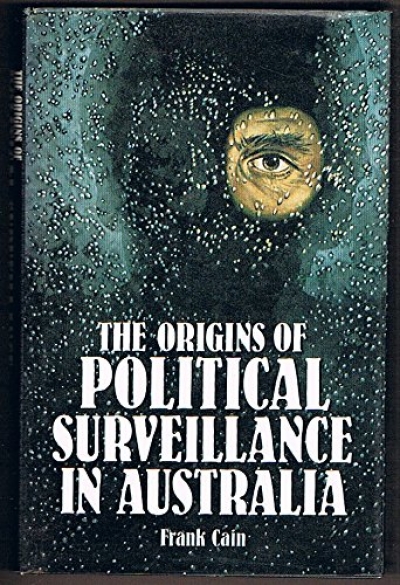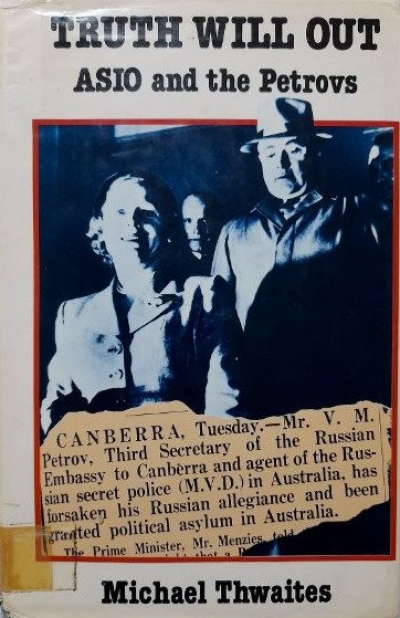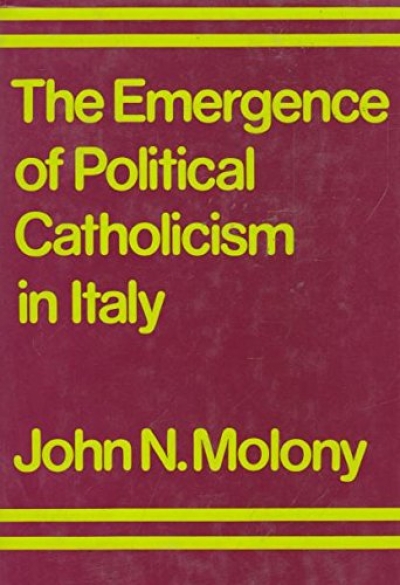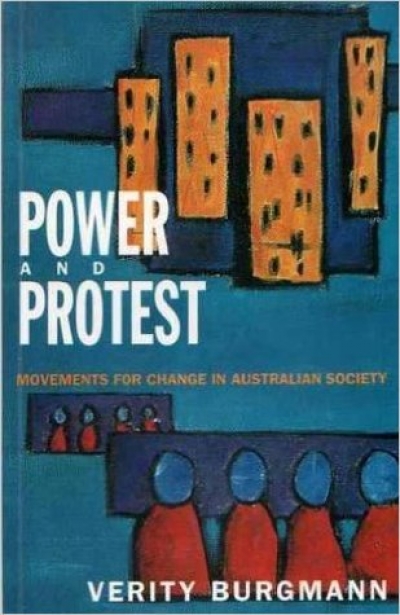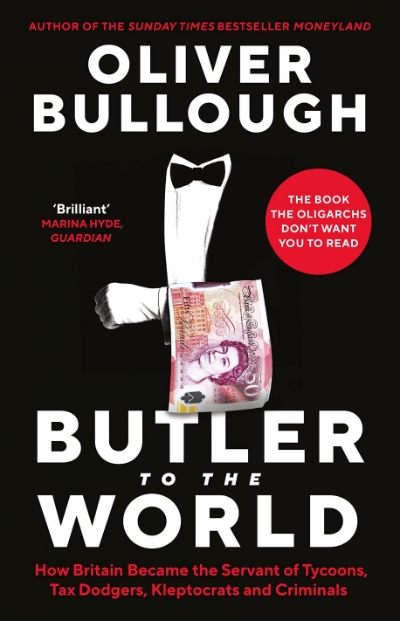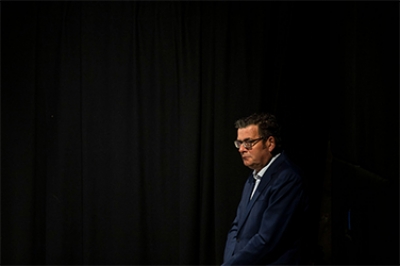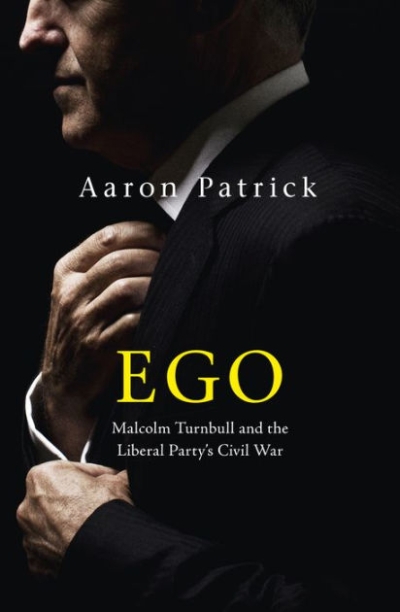Politics
The Origins of Political Surveillance in Australia by Frank Cain
This is such a good book, written in the best military fashion, with all points assembled in proper order but written with the wit and irony usually missing from military historians, that it is a pity it is not better designed. The title page really lacks finesse. But the illustrations and notes are very well-chosen and easy on the eye. It deals equally with civilian surveillance as with military surveillance over, and the reduction of, the rights of others.
... (read more)When I was in London working on a book that Nicholas Whitlam and I wrote on the Petrov Affair, I became friendly with Dr Michael Bialagouski. Bialagouski and I went out several times with our wives to places selected by Michael; a gambling club that had once been run by George Raft, a Chinese restaurant that had a reputation in intelligence circles, that sort of thing.
... (read more)The Emergence of Political Catholicism in Italy by John N. Molony
After Italian troops had invaded the Papal States to establish the nation’s capital in Rome in 1870, Italian Catholics were prohibited from voting in political elections. When this policy began to be relaxed in late 1918, a Sicilian priest, Luigi Sturzo (1871–1959), founded the Partitio Popolare Italiano (PPI) which was to be aconfessional but ‘inspired by Catholic principles’. It was the precursor of the Christian Democratic party that has ruled Italy for the past thirty years.
... (read more)Power and Protest: Movements for change in Australian society by Verity Burgmann
Verity Burgmann’s Power and Protest is an evocation of the major social movements that have arisen and thrived in Australia since the late 1960s, the black, women’s, lesbian and gay, peace and green movements. The writer is a well-known historian of Australian radicalism as well as a political scientist, and in combining history and politics she joins other social scientists such as Terry Irving, Judith Brett, James Walter, Murray Goot – an interesting tradition. In each chapter she offers an evocation of the various movements, outlining origins, developments, aspects, divisions, conflicts, difficulties, dilemmas, successes, achievements, as well as the opposition and resistance to these movements in the wider society. Burgmann writes with ease and energy, often with enjoyable irony and sarcasm. I liked her reference to Kate Millett’s Sexual Politics (1970) as ‘ovarious’. Power and Protest is entertaining as well as clear, and will surely prove indispensable for teaching.
... (read more)For a reform politician, these three books should be compulsory reading. They are not, for such a reader, heartening. But they do ‘serve in many respects to discover, to confute, to forewarn, and to illustrate’.
Brian Dale’s Ascent to Power, very much less than fair to Neville Wran, is an unintended expose of the nature of political journalism in this country and its practitioners.
... (read more)The federal government’s proposal for a multicultural television network has sparked off once more a row about the nature of the Australian national identity.
The opponents of the network seem to fear that it will cause all kinds of divisions in our community by emphasising the different places and cultures to which we owe our origins. They would like to restore the myth of a single nation, bounded and defended by a single shoreline (plus, of course, Tasmania), giving allegiance to a single flag and monarch and united by a single tongue. The myth is glorious in its simplicity, and marred only by the fact that it corresponds to no historical truth.
... (read more)While the art of the ghost writer has a long and honorable history, the court case concerning the extent of Graham Yallop’s responsibility for the book on the recent test series raises a number of general issues apart from the outcome of this particular dispute. At its best, the practice of ghost writing enables the general public to share the experiences of people who have had interesting lives but do not command the verbal skills necessary to constructing a book. Yet the ghost writer may also be the unacknowledged creator of the characters who figure in his work. Few politicians now will risk either the off-the-cuff remark or even the considered epistle, so that the contest of political leadership can degenerate to a trial of speechwriters’ skills. The most proficient comedians are, of course, creatures of their scriptwriters, but they at least exact nothing from us but our laughs. As our sportsmen and women become media figures there is a danger that the players as well as the game will be taken over by the media barons, with the ghost writer acting as puppet master. Fortunately, cricket, a sport which seems able to elicit passions altogether out of proportions with the leisurely pace of the game, has always had players who are as much at home with words as with bat and ball. One of these, Jack Fingleton, was the subject of a review last month; another, Frank Tyson, is a regular contributor to our pages. Their individuality provides some security that the age of the manufactured human is not yet quite triumphant. It would seem, however, that in a world of instant media heroes, publishers have a responsibility to their readers to tell them whether the words they are reading belong to the ostensible author or to an unseen ghost.
... (read more)Butler to the World: How Britain became the servant of tycoons, tax dodgers, kleptocrats and criminals by Oliver Bullough
The ongoing war in Ukraine is not mentioned in Oliver Bullough’s new book, Butler to the World. That is not unexpected: it went to press before Russia invaded Ukraine. But Vladimir Putin’s illegal and reprehensible invasion looms large over this excellent new book about Britain’s role in enabling financial crime. The invasion is an acute example of the real-world consequences of this industry.
... (read more)It was in the wake of the landslide re-election of Daniel Andrews’s Labor government in November 2018 that the former Coalition prime minister, John Howard, christened Victoria ‘the Massachusetts of Australia’. Coming from Howard, this characterisation of Victoria was not meant as a compliment. Rather, it seemed designed as a consolation message for the local Liberal Party. He was providing them with an alibi for their lengthening record of under-performance in the state. Victoria, Howard seemed to be saying, was simply impervious to the party’s conservative values.
... (read more)Ego: Malcolm Turnbull and the Liberal Party’s civil war by Aaron Patrick
When out of government, the Coalition parties resemble nothing so much as an ill-disciplined horde, by turns bombastic and bilious, riven with discord, forever tearing down putative leaders and searching for scapegoats to explain their losses and lot. The blame almost always falls on the departed. In the 1980s, it was Malcolm Fraser’s unwillingness to undertake proper economic reform that they most decried; after 2007, it was John Howard’s refusal to relinquish the leadership to Peter Costello. In Aaron Patrick’s new book, Ego, the blame is laid not at the feet of Scott Morrison, as might have been expected, but at those of Malcolm Turnbull.
... (read more)

